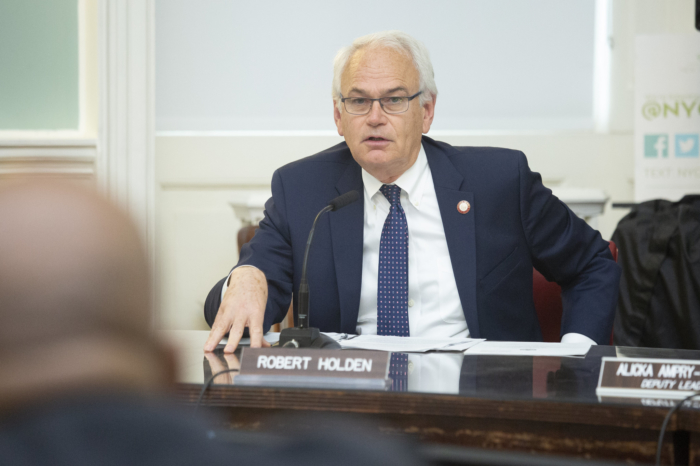By Prem Calvin Prashad
The Municipal identification program, IDNYC, mentioned a year ago in Mayor Bill de Blasio’s first State of the City address has finally come to fruition, with inaugural registration Jan. 12 at the Flushing branch of the Queens Library.
The program joins other municipalities, including Washington D.C., San Francisco and New Haven in granting identification to undocumented immigrants, thereby allowing them access to certain city services, entry to public buildings and a valid form of identification when interacting with the police. Similar programs are in the planning stages for Oakland and Los Angeles.
IDNYC is not for public assistance or work authorization and does not convey legal status. The card establishes the holder’s identity, which is necessary to conduct a number of city services. The card ensures that society’s most vulnerable — undocumented immigrants, the homeless, the formerly incarcerated and the elderly are able to receive official government identification. The Mayor’s Office of Immigrant Affairs took the lead on IDNYC implementation and MOIA Commissioner Nisha Agarwal conducted a series of town halls in the borough to inform residents of the impending program.
A points system establishes identity and residency, with three points necessary for identity and just one point for residency. A valid passport or work permit will instantly grant three points, expired or foreign documents as well as school IDs and permits have lower point values. Leases, bank letters and hospital bills can all establish residency. The homeless and victims displaced by domestic violence can have their residency established by social workers.
Conventional forms of identification, such as driver’s licenses, may require a higher standard to prove one’s identity or carry onerous fees. The ID, which is currently free, will allow fee waivers for residents that would not be able to afford any future fees.
IDNYC will be a useful aid in policing. Without a form of identification, an individual stopped by the police will be detained at the precinct rather than being issued a summons. Backers of the card hope that its implementation will ease interaction with law enforcement in immigrant communities.
Community reaction in Queens has been overwhelmingly positive. Tenzing Chadotsang, interim executive director of the Jackson Heights-based Chhaya CDC, noted the implications of the program within the context of the tremendous growth of the South Asian community in Queens.
“We are excited to see our communities use the Muni ID and feel ownership to the city that has become their home,” he said.
Sayma Khan, a leader of the Jackson Heights-based advocacy group Desis Rising Up and Moving said, “this ID card will make me feel much safer in case I have encounters with the police, or need to go into city buildings for city services.”
LGBTQ leaders also hail IDNYC for allowing the holder to select a gender identity.
“Often, the trans community residents in NYC are stopped by the NYPD for questioning due to their attire, physical appearance or mistaken for sex workers and later accused of prostitution,” said Mohamed Amin, founder and executive director of The Caribbean Equality Project in Queens.
Amin added, “The ID should eliminate many of these routine stops, negative and humiliating line of questioning, gender discrimination and a transphobic experience to a marginalized group, [furthermore,] it will also assist medical professionals and health insurance agents to provide optimal care for their patients based on their gender identity.”
A fringe benefit of the IDNYC is memberships and discounts to cultural institutions in the city. This includes the city’s discount program for prescription drugs.
“The Muni ID is a passport to the many opportunities that New York City has to offer…whether it is to civic and cultural events or governmental or financial institutions,” Tenzing Chadotsang said.
IDNYC proponents hope the program will enable greater civic participation and patronage of the borough’s cultural institutions from immigrant communities.
Due to overwhelming demand, IDNYC applicants must book an appointment through the city’s website at nyc.gov/IDNYC. The site hosts the capacity to reserve an appointment in eight languages. The IDNYC application is also available in 25 languages. The site includes a “document calculator” which can assist an individual in determining if they have the appropriate materials to establish residency and identity.
In addition, potential applicants can complete their application at “enrollment centers,” including the Central and Flushing branches of the Queens Library. The card will arrive 15 days after the application is completed.
































